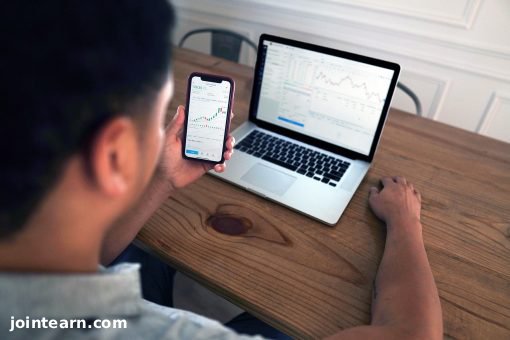
In recent years, Nigerian investors have increasingly sought opportunities beyond the traditional forex market. While currency trading remains popular, many are exploring instruments that offer diversified exposure and potentially lower risk. One area gaining significant traction is indices trading.
Indices trading allows investors to participate in the broader performance of markets rather than focusing on individual companies or currencies. With the right approach, it provides a way to spread risk, track economic trends, and build a more stable investment portfolio.
What Is Indices Trading?
An index is a collection of selected stocks representing a segment of the market. For instance, the S&P 500 tracks 500 large U.S. companies, while the FTSE 100 measures the performance of 100 major UK firms. Trading an index means speculating on the overall movement of this basket of stocks rather than buying individual shares.
For Nigerian investors, this approach provides access to global markets and sectors without the need to analyze each company individually. Instead, the focus is on the collective performance of the group.
Why Indices Are Considered Safer
Several factors make indices an attractive option for Nigerian traders in 2025:
1. Built-In Diversification
An index spreads investment across multiple companies. If one company underperforms, other stronger performers in the index help balance the impact, reducing the risk of sharp losses compared to holding a single stock.
2. Lower Sensitivity to Local Volatility
Indices tracking international markets, such as the NASDAQ 100 or DAX 40, are less affected by Nigerian economic fluctuations. This makes them an effective hedge against currency volatility and domestic policy changes.
3. Exposure to Stable Economies
Leading indices are tied to mature economies with strong corporate governance. Investing in these markets often provides more predictable long-term trends than highly volatile individual assets.
How Nigerian Investors Can Participate
Accessing indices has become easier with online brokers offering contracts for difference (CFDs) and exchange-traded funds (ETFs). This allows investors to trade price movements without owning the underlying stocks.
Through regulated platforms, investors can go long (buy) if they expect an index to rise or go short (sell) if they anticipate a decline, enabling profit opportunities in both rising and falling markets.
Strategies for Successful Indices Trading
While indices tend to be less risky than individual stocks, they still require planning and skill. Nigerian traders are adopting practices such as:
- Monitoring Economic Calendars: Tracking global events, earnings seasons, and central bank announcements.
- Technical Analysis: Using charts, moving averages, and trend indicators to identify entry and exit points.
- Risk Management: Applying stop-loss and take-profit strategies to limit losses and lock in gains.
- Sector Awareness: Understanding how specific sectors within an index perform under different economic conditions.
Case Example: A Lagos-based trader who previously focused on the USD/NGN currency pair allocated part of their capital to the S&P 500 via a CFD broker. Gains from rising U.S. tech and healthcare stocks helped balance losses in currency trades, stabilizing the portfolio and expanding growth opportunities.
The Importance of Education and Broker Selection
Knowledge is as vital as capital. Many online platforms now provide webinars, trading courses, and market analysis tools for Nigerian traders.
Choosing a reliable broker is equally important. Key factors include:
- Transparent pricing and tight spreads
- Strong regulatory oversight
- Fast trade execution
- Convenient local deposit and withdrawal options
Advantages for Nigerian Investors
Indices trading aligns well with Nigerian investment goals because it:
- Reduces dependence on a single company or asset
- Provides exposure to global economies without complex direct investments
- Allows flexible position sizes for both small and large investors
- Serves as a diversification tool alongside forex, commodities, and cryptocurrencies
Looking Ahead
As 2025 progresses, more Nigerian investors are expected to integrate indices into their portfolios. With global exposure, lower volatility, and accessibility via mobile trading apps, indices are becoming an essential tool for both novice and experienced traders.
While no investment is entirely risk-free, indices offer a balance between opportunity and stability that is difficult to match in fast-moving financial markets. For disciplined and informed investors, indices can be a cornerstone of sustainable wealth building.
Final Word
In Nigeria’s evolving trading landscape, indices are no longer just an alternative—they are a strategic choice. By understanding the market, using proper tools, and selecting trusted brokers, Nigerian investors can seize the opportunities indices provide while maintaining a balanced and secure approach to trading.


Leave a Reply